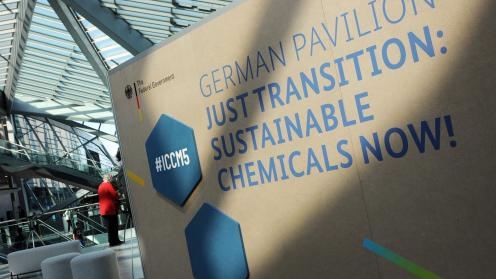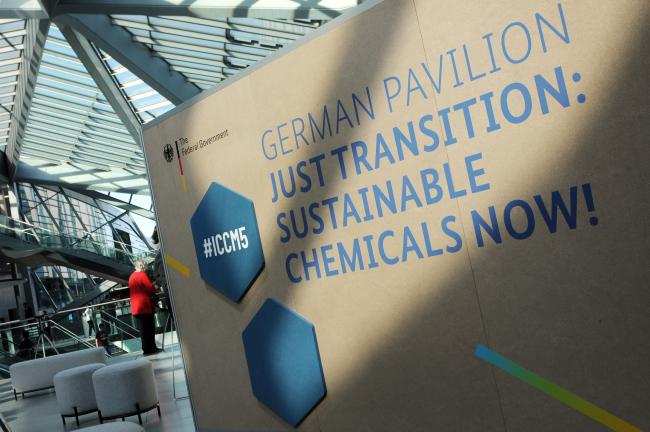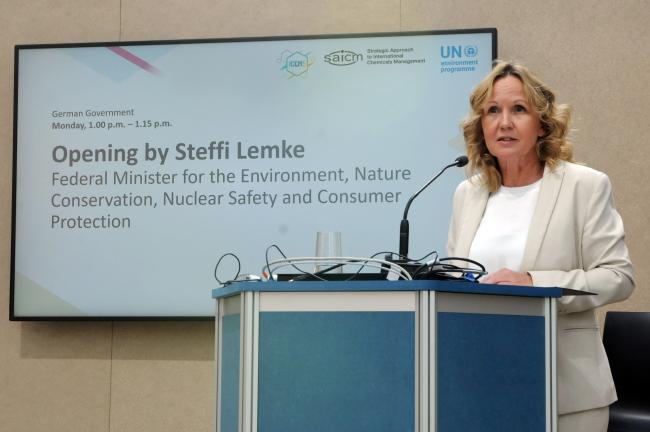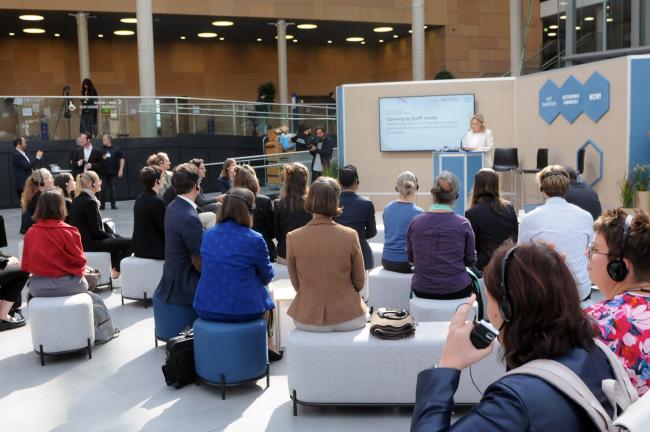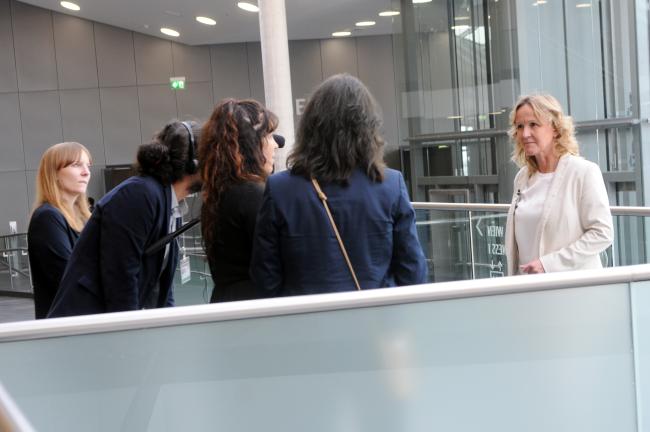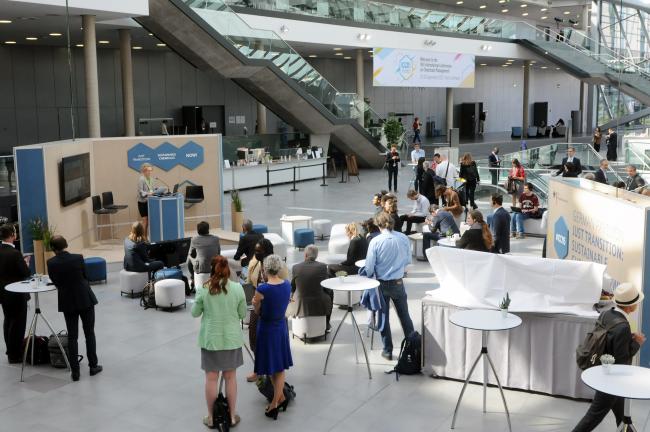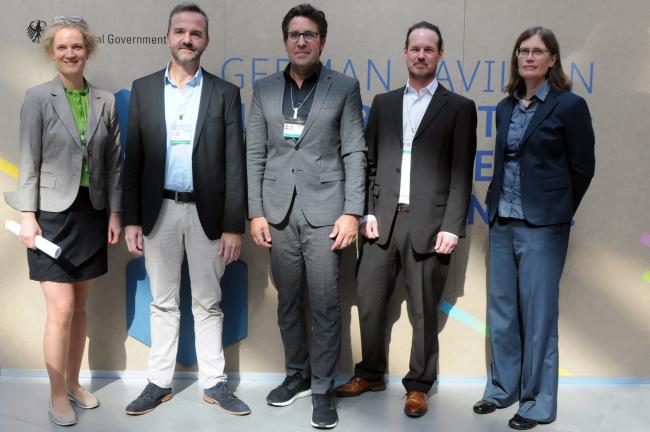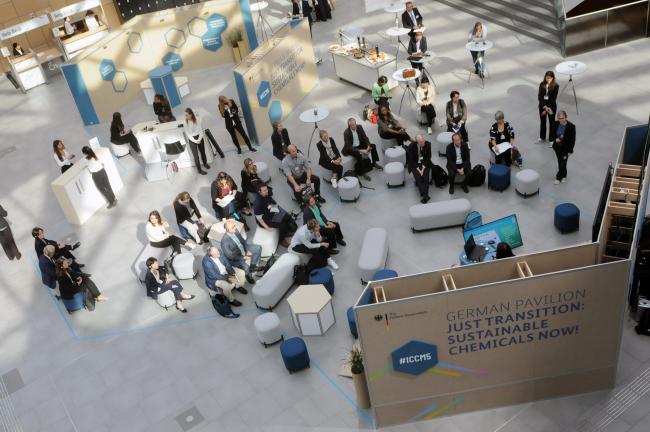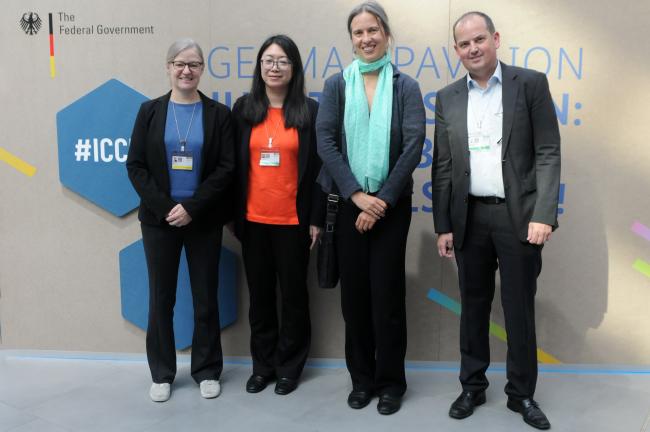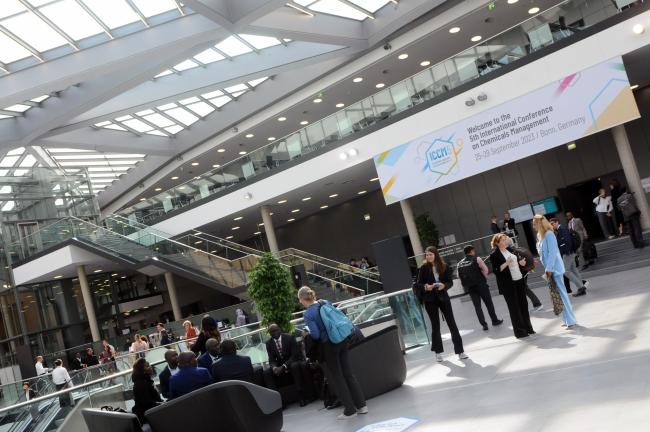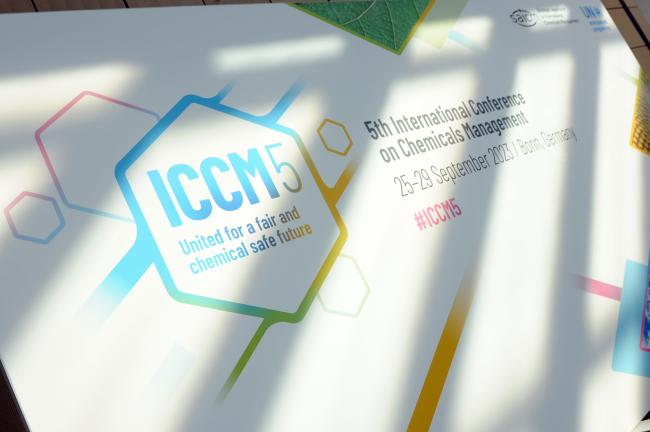About
As host to ICCM5 and exploring the theme "United for a fair and chemical safe future," Germany opened its pavilion's week of events that connect chemicals to climate, agriculture, labor, human rights, and economics, among other issues.
The issue of chemicals management and the idea of a Strategic Approach to International Chemicals Management (SAICM) emerged on the agenda of the UN Environment Programme (UNEP) in 1995 as the international community realized the need to balance the contribution of chemicals to improved living standards, on the one hand, and the diversity and severity of adverse impacts of chemicals on the environment and human health on the other.
The 2002 World Summit on Sustainable Development set a goal of 2020 for achieving the use and production of chemicals in ways that minimize significant adverse effects on human health and the environment. This resulted in the negotiation of a SAICM, which was adopted at the first International Conference on Chemicals Management (ICCM1) in 2006, in Dubai, United Arab Emirates.
ICCM4, held in September 2015, initiated an intersessional process to prepare recommendations on the future of SAICM and the sound management of chemicals and waste beyond 2020. The culmination of this process, ICCM5, is taking place in Bonn, Germany, from 25-29 September 2023. In parallel to the negotiations, a rich schedule of side events, including many under the German Pavilion, is focusing on practical implementation, offering inspiration and applied solutions to chemical-related challenges.
Steffi Lemke, Federal Minister for the Environment, Nature Conservation, Nuclear Safety and Consumer Protection, Germany, formally opened the German Pavilion at ICCM5. She outlined the Pavilion’s programme for the week, noting the invitation to partners from the German government and beyond to make presentations about their respective actions to promote the safe management of chemicals and waste.
Minister Lemke emphasized the Conference’s theme: “United for a fair and chemical safe future,” stating that, for each day, the deliberations will focus on a different topic, including:
- Addressing the Nexus of Climate, Biodiversity, and Agriculture;
- Exploring the Crossroads of Health and Labor;
- Emphasizing Human Rights, Science, and Education; and
- Analyzing Economics, Value Chains, and Innovation.
She underscored that the safe management of chemicals and waste plays a vital role in the necessary social and environmental transformation, stressing that the ICCM mission is “to steer the right course.” She stressed the need to highlight problems and discuss solutions, emphasizing the role of science, and research and development. She added that it is crucial for all stakeholders, including governments, civil society, and industry, to work together.
Minister Lemke then highlighted the development of the forthcoming Science-Policy Panel to Contribute Further to the Sound Management of Chemicals and Waste and to Prevent Pollution, noting that, when established, it will be instrumental for a sustainable future, bringing the scientific community together in the same way that the Intergovernmental Panel on Climate Change (IPCC) and the Intergovernmental Science-Policy Platform on Biodiversity and Ecosystem Services (IPBES) do for climate action and biodiversity conservation, respectively.
She noted that the Science-Policy Panel will provide to policymakers, industry, and civil society the comprehensive knowledge necessary to fight the pollution crisis, one of the three pillars of the triple planetary crisis. She stressed that the decision by the UN Environment Assembly (UNEA) to establish the panel was a very good one, noting that focusing on chemicals can be the key to support sustainable lifestyles and business practices, including in the fields of energy storage systems, medical technology, and agriculture. She stressed the need for chemicals, materials, and related products to be designed to be safe and sustainable from the beginning.
Minister Lemke highlighted subjects to be discussed during the week in the Pavilion, including:
- the multistakeholder partnership to address pollution, climate change, and biodiversity loss;
- the safe management of chemicals and the interface between sustainable chemicals management and climate action;
- approaches to evaluating the risks chemicals pose, noting the relevant effort by the German Human Biomonitoring Commission; and
- the cost of inaction, pointing to a recent World Bank study.
Minister Lemke thanked all who contributed to putting together an excellent programme for the week and invited all ICCM5 participants to actively take part in the discussions and be inspired, setting the stage for an interesting and productive week ahead.
All ENB photos are free to use with attribution. For this side event, please use: Photo by IISD/ENB | Diego Noguera.
To receive free coverage of global environmental events delivered to your inbox, subscribe to the ENB Update newsletter.
